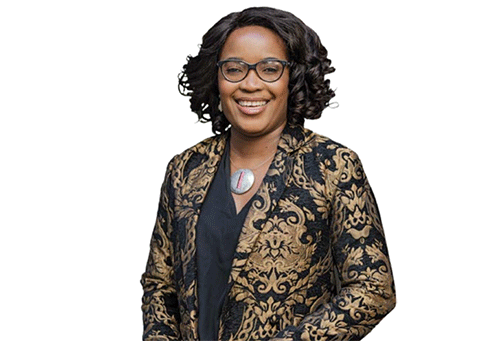Petroleum commissioner Maggy Shino said the Kudu gas project is now seen in a different light after recent oil discoveries in Namibia offshore.
“Our animal has refused to die, and more life is being pumped into it. We, therefore, call upon you to look at the project now with a new vision with a new lens and as a new opportunity because of additional gas reserves that we found,” said Shino while addressing about 700 delegates at Namibia’s two-day Oil and Gas Conference 2023, which concluded yesterday in the capital Windhoek.
The Kudu gas field in the northern Orange sub-basin, approximately 130km offshore, was discovered in 1974, and it is delineated by seven subsequent wells.
In 2017, BW Energy entered into a farm-in agreement for a 56% operated interest, with the National Petroleum Corporation of Namibia (Namcor) holding a 44% joint venture interest.
In 2021, BW Energy signed a farm-up agreement with Namcor, increasing the corporation’s interest to 95% in the licence, and closed the transaction in 2021.
With a smile, Shino continued that the project now has the possibility of increasing the 1.3 TCF (trillion cubic feet) of natural gas up to 10 TCF of gas due to the associated gas lying within Namibia. TCF is a volume measurement used by the oil and gas industry.
Touching on the plans and strategies, the commissioner stated that Namibia wants to build a floating platform located at 170 kilometres offshore within the block owned by the joint venture.
“With this floating platform, we are then going to build a pipeline that is going to
move the gas from offshore to Lüderitz to a point called Elizabeth Bay, where we are going to put up a power batch to convert the natural gas which we produce into electricity,” Shino said in laying out the plans.
She noted that Namibia has a well-connected power network which extents or connects Namibia to South Africa, Zambia, Botswana and Angola. Thus, from Lüderitz, Namibia is going to extend by a distance of 20 kilometres to then evacuate the power molecules generated from the power plant.
This will lead the project to generate up to 420 megawatts for the Namibian market’s consumption, and also supply regional markets with the power demands that they have. Namibia still imports, on average, more than 60% of its domestic electricity needs.
“It’s now a project that is backed by infrastructure, and it is a clean energy source. With the production of electricity from natural gas, we are able to provide an energy transitions solution, and being able to lower our carbon emission as a continent and also as a nation. There is a need for us to have baseload power, and the Kudu Gas project is the only solution that can give us baseload power. Only with baseload power are you able to industrialise as a nation”, the thrilled commissioner added.
Shino assured the audience that Namibia is looking at an opportunity not only to have its lights on, but also looking for an opportunity of an industrialised nation by making sure that power is provided to drive the industry. The country will thus be able to provide energy security for the region, especially to South Africa, Zambia and Zimbabwe, as well as to other countries which are experiencing power shortages.
Earlier this year, Klaus Endresen, general manager of BW Kudu, a subsidiary of BW Energy, which is an oil and gas company involved in the acquisition, development and production of proven oil and natural gas fields, said they anticipate the project to be formally sanctioned in mid-2024, at which point a final investment decision would have been taken. Endresen added that construction will follow shortly, and achieve commercial operations by late 2026.
BW Energy is an affiliate of the BW
Group, a global maritime energy transportation and floating gas infrastructure company with an 80-year history.
He said BW Kudu will fund the entire project itself, meaning no capital inflow will be required from the Namibian government.
Financing arrangements for the project are progressing well, with no funding gaps anticipated.
Said Endresen: “First of all, Kudu will give support that the person in the street experiences a safe and secure quality of electricity supply entirely, dependent on domestic resources. We are aware of the local content requirements, and we intend to meet them as prescribed in our agreements with the government and the draft local content policy currently in circulation for review. The project will create jobs (direct and indirect) and generate an income stream for the State via royalties and taxes”.


